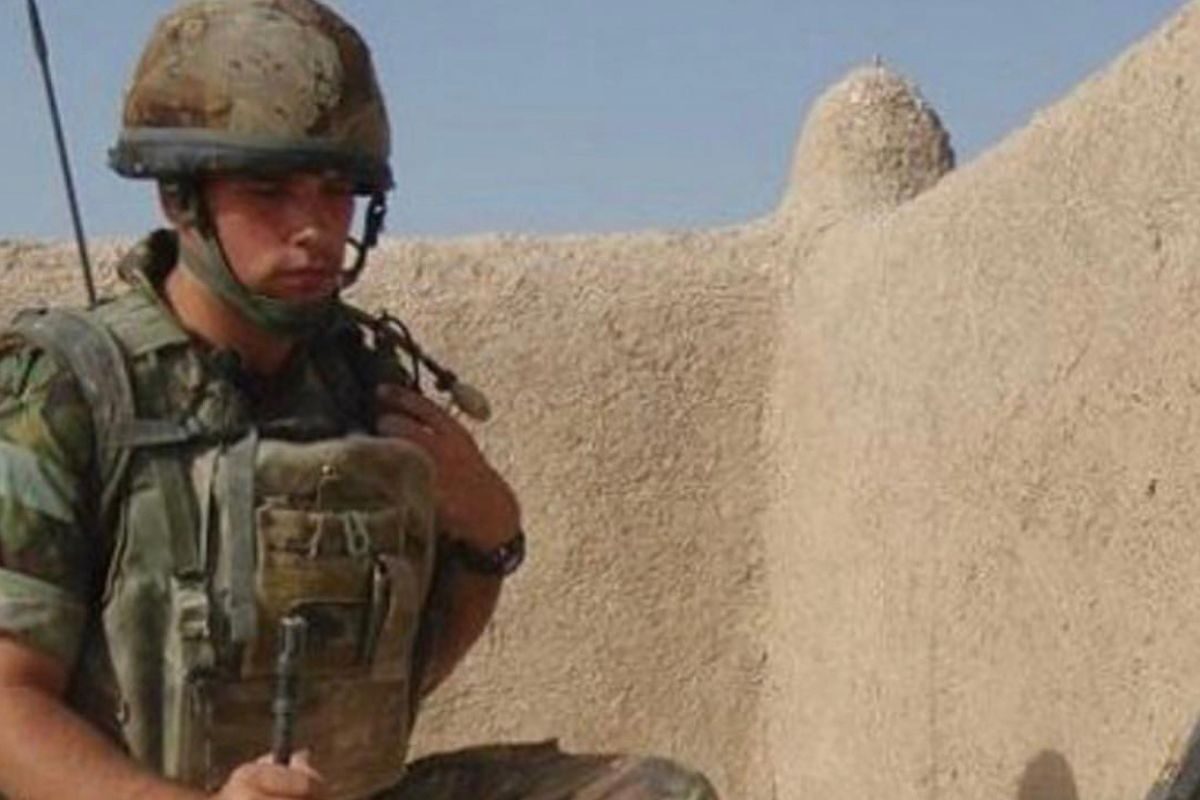Battle-Tested Strategies: Overcoming and Dealing with Stress, Lessons from the Military

The air crackled with tension as the first shots rang out, tearing through the air, this was immediately followed by a deafening roar. Dust and debris exploded around me, sending shrapnel flying in all directions. The blast was so powerful it took me off my feet. My heart pounded in my chest, my ears ringing and my senses heightened as I picked myself up from the dirt, I couldn’t see anything, thick dust and smoke filled the air.
“Man down!”
The cacophony of gunfire, explosions, and shouts of “Man down!” became a chaotic symphony that assaulted my ears. The acrid smell of gunpowder and blood filled the air, mixing with the metallic tang of fear. I could feel the adrenaline surging through my veins as the dust cleared and I could see one of my men on the floor, it was Jack. He had lost 3 limbs and needed life saving first aid.
Bullets whizzed past me, kicking up dirt and rock with deadly accuracy. I moved towards Jack, every inch of me hyper-aware of the danger that lurked around every corner. The weight of my equipment bore down on me, a constant reminder of the gravity of the situation.
My mind raced as I assessed the situation, trying to make sense of the chaos unfolding around me. I could hear the urgent calls for support from my comrades, the crackle of radio chatter, and the distant thud of artillery. The smoke and dust hung thick in the air, obscuring my vision and making it difficult to spot the enemy. My men administered life-saving first aid as I radioed through to our forward operating base with an update.
Time seemed to slow down
Time seemed to slow down, every second feeling like an eternity as we fought to keep our comrade alive. The fear and uncertainty were palpable, but we pushed forward, determined to extract him and save his life.
The intensity of the situation was unlike anything I had ever experienced. The deafening roar of gunfire, the constant threat of incoming rounds, and the chaos of battle were overwhelming. Yet, amidst the chaos, there was a deep sense of camaraderie among my fellow soldiers. We moved as one, covering each other’s backs, relying on each other for support and protection. Every step was a calculated risk, every decision a matter of life or death.
Pushing through the fear
The weight of the situation bore down on us, but we refused to falter. We gritted our teeth, focused our minds, and pressed forward, pushing through the fear, stress and exhaustion.
As the adrenaline ebbed and the reality of the situation sank in, I felt a mix of exhaustion, relief, and a sense of accomplishment. I looked around at my comrades, their faces etched with weariness, but also marked with a steely resolve. We had weathered the storm, pushed back the enemy, and survived the crucible of combat. In that moment, I realised the true weight of the experience. The intensity, the fear, the camaraderie, and the indomitable spirit of the human will to survive in the face of adversity. It was a powerful reminder of the harsh realities of war, a testament to the resilience and courage of the human spirit, and a bond forged in the crucible of battle that would forever shape my life.

Stress is an inevitable part of life
Stress is an inevitable part of life, and its effects can be debilitating if not effectively managed. As a veteran who has experienced combat in some of the most diverse and hostile environments across the globe, I have learned valuable lessons about overcoming and dealing with stress that can be applied to everyday life. Drawing on my experiences in the military, I have discovered strategies that can help anyone navigate through challenging times and emerge stronger on the other side.
- Cultivating Resilience: The military teaches resilience as a core value. In the face of adversity, soldiers are trained to improvise, adapt, overcome, and push forward. This mindset can be applied to everyday life by cultivating resilience. Resilience is the ability to bounce back from setbacks, to persevere in the face of challenges, and to maintain a positive outlook even in difficult situations. Building resilience requires developing a growth mindset, focusing on solutions rather than problems, and developing a support network of friends, family, or mentors who can provide guidance and encouragement during tough times.
- Emphasising Self-Care: In the military, self-care is crucial to maintain physical and mental readiness. Soldiers are trained to prioritise role specific training, exercise, and rest to optimise performance in high-stress environments. This emphasis on self-care can be translated into civilian life as well. Taking care of oneself through regular exercise, a healthy diet, and adequate sleep can help reduce stress and increase overall well-being. Additionally, engaging in activities that bring joy and fulfillment, such as hobbies, spending time with loved ones, or practicing mindfulness, can serve as effective stress-reducing strategies.
- Utilising Effective Communication: Communication is critical in the military for teamwork, coordination, and problem-solving. Soldiers are trained to communicate clearly, concisely, and effectively in high-pressure situations. This skill can be applied to managing stress in civilian life by fostering open and honest communication with trusted individuals. Expressing feelings, concerns, and challenges can help alleviate the burden of stress and provide a fresh perspective. Additionally, seeking support from mental health professionals or counselors can be an effective way to process and manage stress.
- Practicing Time Management: Time management is crucial in the military to ensure that tasks are completed efficiently and effectively. Soldiers are trained to prioritise and manage their time wisely to meet mission objectives. This skill can be translated into civilian life to manage stress effectively. By setting priorities, creating schedules, and allocating time for important tasks, individuals can reduce the overwhelm of stress and approach challenges with a structured plan. Also, learn to be comfortable saying “No”. Soldiers on operational tours will do exactly what is needed to achieve the mission and more if required. If part of the plan put forward from a senior officer doesn’t make sense to an experienced soldier of a lower rank, they’re encouraged to speak up and be a thinking soldier. Utilise this in civilian street and say no to things that are going to add more pressure and increase your stress levels. People won’t be offended, try it, you will see for yourself.
- Adopting a Proactive Mindset: In the military, soldiers are trained to anticipate and mitigate potential risks and challenges. This proactive mindset can be applied to civilian life by anticipating and planning for stressful situations. Rather than being reactive, individuals can prepare for stress by developing coping mechanisms, seeking support when needed, and having a plan in place to manage stressors effectively. It’s like Building calluses on your brain. If certain stressful events are unavoidable, such as public speaking as part of your job role, expose yourself to more opportunities to speak in public. This will help you build confidence in your abilities and reduce the stress and anxiety over time.
- Seeking Professional Help When Needed: In the military, soldiers are encouraged to seek help when faced with mental health challenges. Seeking professional help is not a sign of weakness, but rather a proactive step towards self-care and well-being. The same applies to civilian life. If stress becomes overwhelming and affects daily functioning, seeking help from mental health professionals, counselors, or therapists can provide valuable support and guidance in managing stress.
In conclusion, overcoming and dealing with stress is a challenge that we all face at some point in our lives. Since leaving the military I have dealt with events that have caused me more stress than being in a firefight in Afghanistan. Drawing on my experiences in the military, I have learned valuable lessons about effective stress management.
By cultivating resilience, emphasising self-care, utilising effective communication, practicing time management, adopting a proactive mindset, and seeking professional help when needed, individuals can effectively overcome and manage stress in their everyday lives
By John Loveday, CEO, Co-Founder & Shareholder, Study Academy, Toppa, Stoic Events and Glider Yachts











Responses